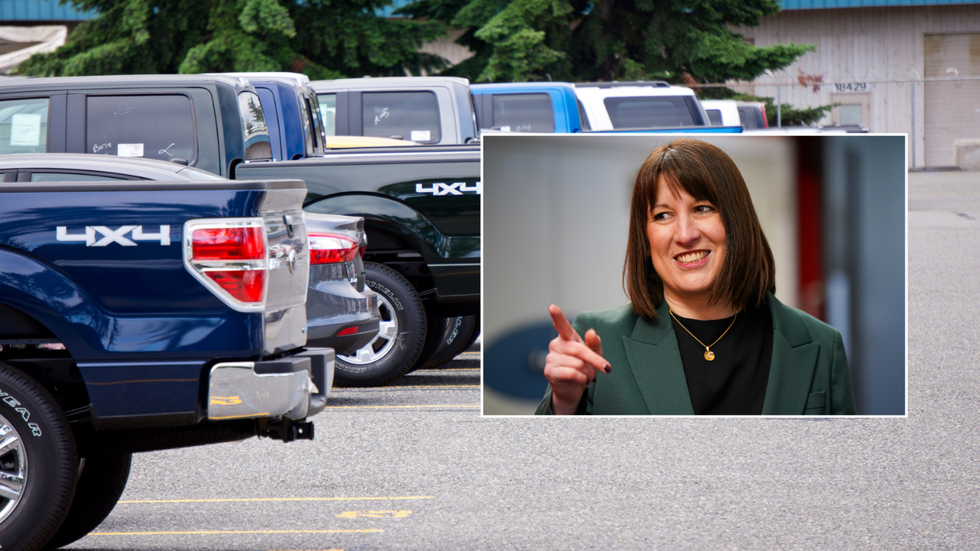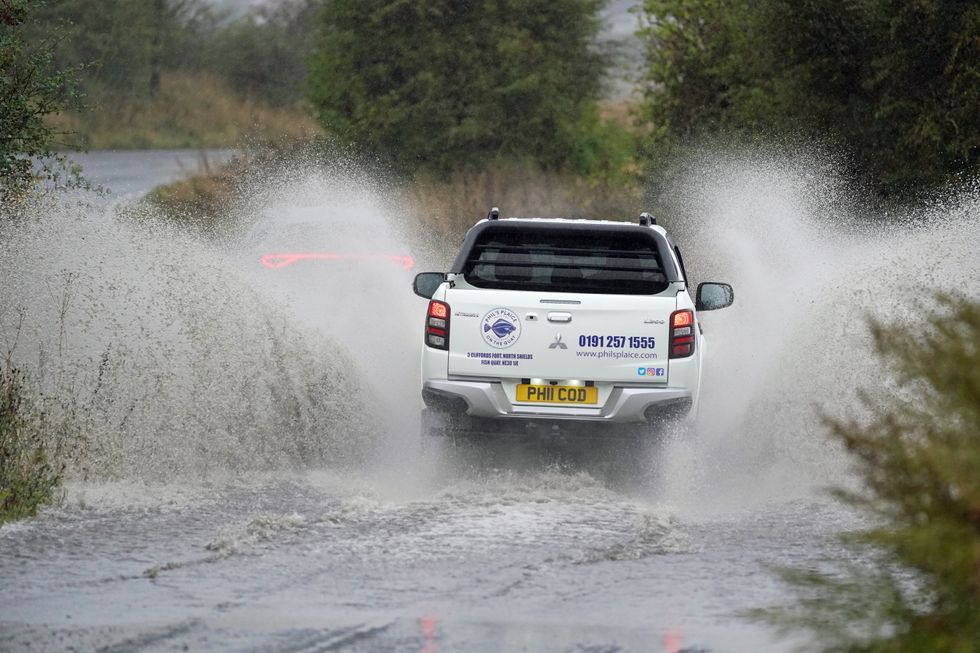WATCH: Rachel Reeves says she will continue to support the purchasing of electric vehicles
GB NEWS
Changes for double cab pick-up trucks came into effect from April 6
Don't Miss
Most Read
Trending on GB News
Rachel Reeves could leave drivers "considerably worse off" as a result of changes to double cab pick-up trucks' taxes, which came into effect this month.
The new rules, which were introduced from April 6, have meant that popular vehicles like the Ford Ranger, Isuzu D-Max and Toyota Hilux will now be subject to the same Benefit-in-Kind (BIK) tax rules as company cars rather than vans.
This change follows a 2020 Court of Appeal ruling in the Payne vs Ors case, which determined that double cab pick-ups were not demonstrably more suited to either commercial or personal use.
As a result, HMRC updated its guidance to reflect this ruling, abandoning the previous one-tonne payload classification system.
Do you have a story you'd like to share? Get in touch by emailingmotoring@gbnews.uk

Experts have warned that the changes will impact business owners the most with new cost hikes
PA/GETTY
But experts have warned that business owners could face more difficulty under the new regime, with some drivers facingadditional tax bills of £8,000 or more annually.
Tax firm Finsbury Robinson shared: "The changes to the tax treatment are significant, and many business owners will be considerably worse off as a result of them. However, there are choices that can be made to minimise tax liabilities."
Double cab pick-ups combine the cabin space of a four-door car with the load-carrying capacity of a work vehicle, making them versatile for both business and family use.
These vehicles have been particularly popular among small business owners who use them for dual purposes, both for work and personal transportation.
Before April 2025, double cab pick-up trucks with a payload of 1,000kg or more that were used outside of business hours were taxed at the flat rate BIK goods van rate of £3,960.
This meant £3,960 was added to the driver's taxable income and then taxed at either the 20 per cent basic rate or 40 per cent higher rate, depending on their overall income.
The system was a way for HMRC to obtain tax revenue from benefits obtained through work that it considers to have a financial value, Finsbury Robinson explained.
But under the new rules, double cab pick-up trucks will now be subject to company car BIK rates, which are based on vehicles' carbon dioxide emissions and range from two per cent to 37 per cent.
Most diesel-powered double cab pick-up trucks, which are common due to their high torque outputs needed for hauling heavy loads, typically fall into the highest 37 per cent CO2 band.
The tax calculation now involves the vehicle's P11D value, which is the drive-away new cost minus the first registration fee and the first year's Vehicle Excise Duty, but including VAT.
For example, a basic rate taxpayer with a £45,000 dual-use double cab pick-up truck in the top CO2 band would pay £3,330 annually, while higher rate taxpayers face an even steeper bill of £6,660 for the same vehicle.
The fuel benefit system has also changed dramatically for the truck owners. Previously, dual-use vehicles were on the company van BIK rate of £757 in the last tax year. Now, drivers have been moved to the car fuel benefit multiplier, which stands at £28,200 for 2025-26.
This figure is multiplied by the vehicle's CO2 band percentage and then by the taxpayer's marginal tax rate to determine the annual tax payable for company-funded fuel.
LATEST DEVELOPMENTS:

The changes for double cab pick-up trucks came into effect from April 6
PAFor drivers with lower mileages, this benefit may not be worth claiming at all, the tax firm warned.
Capital allowances have similarly been affected, with double cab pick-up trucks now treated the same as company cars rather than allowing owners to deduct some or all of the cost from profits before tax.
But to help businesses, HMRC has introduced transitional arrangements for those who purchased, leased, or ordered a DCPU before April 6.
These owners can continue under the previous tax regime until they sell the vehicle or its lease expires, with a final cut-off date of April 5 2029.








